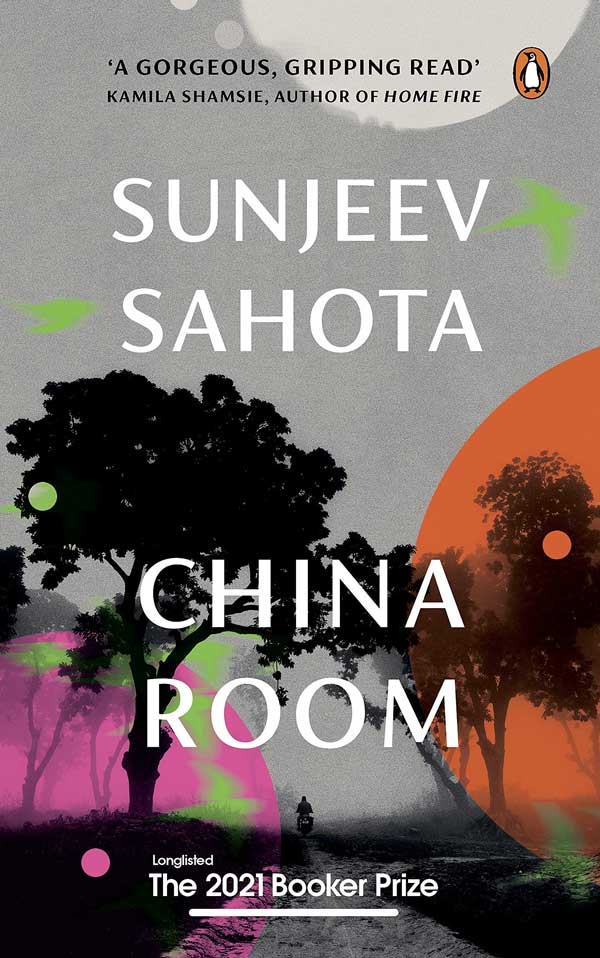Book: China Room
Author: Sunjeev Sahota
Publisher: Hamish Hamilton
Price: Rs 599
Two stories, concurrently narrated and thematically interwoven, make up the Booker Prize-nominated China Room, which presents a narrative of love, desire, betrayal, struggles, longing and escape. The historical background to India’s struggle for freedom unravels yet another — significant — aspect: along with bigger struggles, there were numerous forms of everyday struggle for liberation that remained mostly unaccounted for, only to resurface in memories and remembrances, in legends and lores, in rumours and gossip.
The first story, set in a remote village in Punjab in 1929, is the story of Mehar Kaur. Mehar is portrayed as a curious, fun-loving, brave and strong-willed woman who tries to change her preordained life and dreams of building a new one. The character of Mai, the overbearing maternal patriarch, is particularly interesting. Her control over her three sons and their wives is pervasive. Mehar and her two sisters-in-law find themselves confined to the ‘china room’, named after the old, willow-pattern plates that were once a part of Mai’s dowry. They are occasionally called upon to meet their husbands in a private room with a tap on the shoulder by Mai in the dark. Mehar, like the others, does not know who her husband is or what is his name. Her main responsibility as a daughter-in-law is to provide an heir to the family. Despite strict surveillance and control over her life, Mehar falls in love outside of her marriage and chooses to pursue her desires. She ends up getting incarcerated for her choice but is immortalized in the village’s tales and rumours.
Thus, 70 years later, when an eighteen-year-old heroin addict comes from England to stay with his aunt and uncle after he fails his A-levels and is in dire need of help to get rid of his addiction, he learns about his great-grandmother through occasional rumours from the residents of the village. His stay at the abandoned village farm of his uncle is his coming-of-age moment. He tries to turn his life around, falls in love with an older, vivacious doctor, Radhika, and establishes a relationship with a local teacher, Tanbir Singh, only to realize that love and desires are interlinked with pain, hurt and trauma.

China Room by Sunjeev Sahota, Hamish Hamilton, Rs 599 Amazon
Although the second storyline is less gripping than that of Mehar, Sunjeev Sahota uses subtle hints to establish that even after 70 years, not much has changed when it comes to women’s desires and romantic aspirations. During one of the conversations between boy and uncle, the latter explains the bitterness of his wife through her failed (alleged) love affair before marriage. In one of the later passages, the aunt admits that she may not have known Mehar Kaur but she knew ‘the’ hut (lover’s hut), leaving the reader with many possibilities. There is no direct connection between these two characters; yet one spots the ghost of Mehar Kaur’s life governing the lives of many women of the region, such as that of the narrator’s aunt. It is interesting that the other female character in Sahota’s storyline, who is seen to be transgressing the boundaries of female propriety, is not native to the village. Although there is gossip about her relationship with the narrator, to the point of it being a scandal, she is portrayed as carefree and unconcerned with the tattle. Her temporariness — as someone who can and will eventually leave the place and go back to where she belongs — makes the reader reflect on how the ‘other’ woman is perceived; her transgressions may be tolerated but they are not ignored.
Sahota’s novel is a narrative woven around diverse voices powerfully portraying the patriarchal structures and systems of thought that dictate almost all aspects of our lives. China Room can be seen as a metaphor that allows the readers to look at it not only as a dilapidated building that confines three women and allows for their control by Mai and her sons but it also denotes the belief systems that Mai brought with her along with her dowry and are left as inheritance for future generations. It is a reminder of a timeless subjugation that makes this control plausible.











